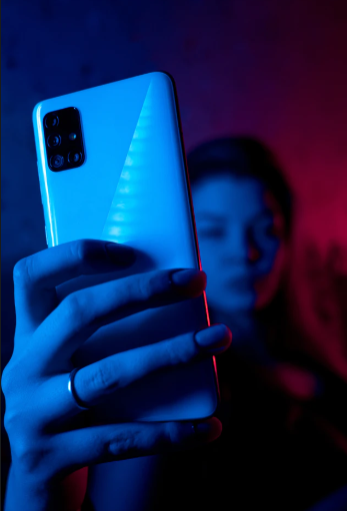Due to the ongoing coronavirus pandemic, we have all forced to do our jobs or study at home, staring at our computers for long periods. People's use of smartphones to play games and check social media has also increased.
This means that this whole situation is putting us in front of our devices and screens more than ever. In fact, a 70% increase in usage across social media applications such as Instagram, Facebook, and Whatsapp has been reported by Facebook.

This does not only strain our eyes, but it also damages our skin over time.
According to Marcene Alexiades, an associate clinical professor at Yale University's School of Medicine, she told Harper's Bazaar that "Blue light has high energy and therefore is able to penetrate deep into the skin. I caution my patients when using their devices because screens may inadvertently emit UV light, which is known to cause skin cancer."
Blue Light Radiation can cause skin cancer
So, what is blue light and how does it affect the skin? A Miami-based dermatologist by the name of Loretta Ciraldo has stated that blue light which is also known as High Energy Visible Light (HEVL) and Artificial Visible Light (AVL), is the spectrum of light that is very much close in wavelength to ultraviolet light.
"The sun emits large amounts of blue light, which is why the sky is blue. Digital devices, including our cell phones and computer screens, also emit blue light but in smaller quantities so we don't see it as intensely as the sky's blue hue," Ciraldo said.
Just like the ultraviolet rays that are emitted from the sun, blue light actually has a short wavelength as well. However, when it comes to high amounts of blue light coming from gadgets like phones and PCs, it can greatly damage deep layers of the skin and can eventually cause premature aging and skin cancer.
According to Ellen Marmur, an NYC board-certified dermatologist, excessive long term exposure to sources of blue light can cause skin damage. This includes the weakening of the skin's surface, inflammation, and pigmentation.
Recent reports from the National Center for Biotechnology Information have shown that when skin cells are exposed to artificial blue light emitted from electronic devices, it can cause damage to the proteins and the lipids that give moisture and repair the skin.
Ciraldo also explains that "The topic of blue light protection is very new. For many people, blue light causes more redness, swelling, and hyperpigmentation than UVA. It is for this reason that we dermatologists are now focusing on protecting skin from the damage of blue light."
ⓒ 2026 TECHTIMES.com All rights reserved. Do not reproduce without permission.




